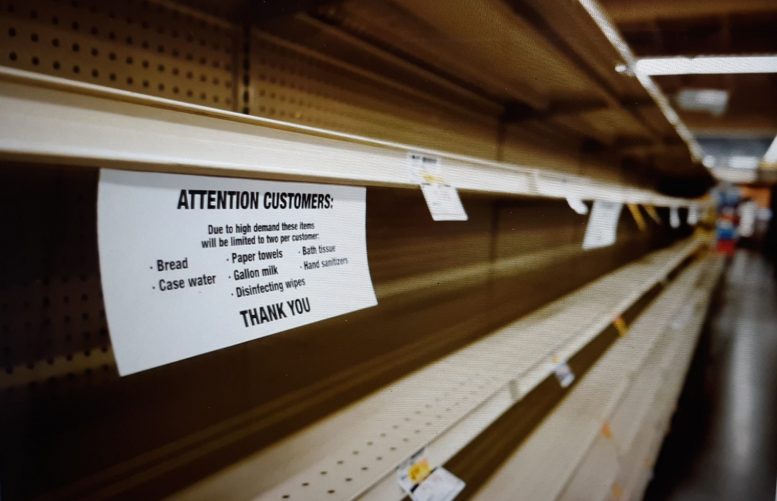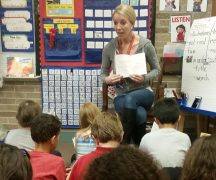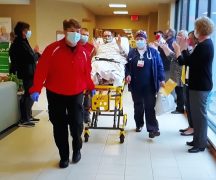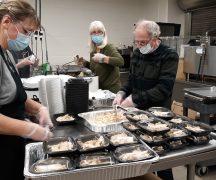By JAN LARSON McLAUGHLIN
BG Independent News
COVID-19 and the restrictions imposed to combat it are confusing for adults. Just imagine how frightening it may seem to kids whose lives have been turned upside down by a virus with a strange sounding name.
Children no longer have structured school days, play dates with friends, and maybe no visits to grandparents for the time being.
Local mental health professionals who work with youth have some advice on how to reduce exposure to the virus and exposure to the anxieties felt by their parents.
First, talk to children at their level. Keep it simple and skip the graphs. Young children don’t need to see epidemiological models of the coronavirus.
“Flattening the curve (a phrase being used by public health officials) is going to confuse younger children,” said Dr. Bill Donnelly, of Donnelly Community Psychology.
“Talk to your children at the level that they understand,” Donnelly said.
It’s a good idea for parents to reassure children about the unlikely impact of the virus on them, said Dr. Ellen Anderson, of Person to Person Resources.
“They’re probably not going to get sick,” Anderson said.
But it’s important that parents don’t avoid the topic. Children may not get sick, but it will be next to impossible for them to avoid hearing about COVID-19. And kids worry more when they are kept in the dark, according to Heidi Wilson, program manager for home-based staff at Children’s Resource Center.
“Not talking about it can also cause anxiety,” Wilson said.
Parents should be reassuring and honest – to a point, according to Kristen Junga, early childhood prevention program manager at CRC.
“When I say honest, I don’t mean telling them everything that’s going on,” Junga said.
It may be wise with younger children to compare the virus to the last time they had a cold or flu, and explain “Most people are getting just a little bit sick from this,” Junga said.
Remember, kids don’t think like adults. If parents tell their children that senior citizens can get very sick and die from the virus, they may need to explain exactly who qualifies as a senior.
“To children, parents in their 40s seem ancient,” Donnelly said.
Turn off the TV
While adults may crave constant updates from the news, that level of viewing is overdosing for kids.
“Turn the television off,” Donnelly said. “Don’t make it a source of constant discussion.”
And get good information – from the Wood County Health Department locally and Centers for Disease Control nationally.
“It’s important for parents to have accurate information,” he said.
Don’t rely on social media for facts and recommendations about the coronavirus.
Most adults already know this, but in case they need reminding – “Not everything you see on Facebook and Twitter are true,” Wilson said.
Model good behavior
As parents instruct their children on proper handwashing and social distancing, it’s vital that they follow the same rules … the children are watching.
Set a positive tone. Be flexible. And model a good attitude as well.
“If a parent is anxious, kids can pick up on that,” Wilson said. Adults may be feeling overwhelmed, but sharing that emotion with young children won’t help matters.
“We should try to normalize things as much as we can,” Anderson said. “Don’t expose your kids to your anxiety.”
Children are co-regulators, Junga said.
“If parents are anxious, kids will take that on,” she said. “If the household anxiety level is high,” children are more likely to struggle.
Include the kids in the family’s efforts during this trying time. “Model coping statements like, ‘We can pull this off,’” Donnelly suggested.
Stick with a routine – when possible
School is out and playdates are off, but parents should still try to maintain structure in their children’s daily lives. That means, school is on – but just at home.
“School is still very important,” Donnelly said. “Treat school work as a serious and important thing.”
“If you can, have a school day for your kids – keeping structure and keeping educational activities going.”
Try to find ways to make it fun.
“Watch Bill Nye the science guy,” Donnelly said. “It’s really important that kids’ brains keep working.”
That routine should extend to family life. Stick to normal bedtime routines, breakfast times, and eating dinner together whenever possible.
“We’re all confused,” Junga said. But a sense of normalcy will help allay some childhood fears.
Being stuck at home isn’t what it used to be
While it may be a bummer to miss school and friends, it may help if kids understand why socialization is against the rules right now. The less contact with others, the lower chance of the virus spreading.
“We’re trying to outsmart the virus,” Donnelly said.
Kids can still have contact with friends and family through Facetime and phone calls. If they miss their grandparents, a card or drawing would probably be appreciated by older adults who are likely experiencing that same penned-in feeling.
Go outside to burn off some energy
Physical exercise is important for kids. But right now there’s no gym class, no ball teams, no dance practices.
“You have to be inventive,” Donnelly said.
It’s safe to send kids outside for Frisbee, Wiffle Ball and other activities. However, be aware that backyard activities are magnets for other kids in the neighborhood.
“If they play outside, other kids will want to come over and play,” Donnelly said. It may be tough, but parents should turn kids away and explain why. “You have to have really clear rules ahead of time.”
Remember, older kids may also be struggling
While they may like the first few days of sleeping in, many middle school or high school students will feel a loss by being asked to stay home.
For many, the closing of schools means the end of sports seasons, staged musicals, proms and even graduations.
“It’s very tough,” Donnelly said. “For seniors in high school, you can’t make it better. It will never be the same.”
Parents need to acknowledge the loss felt by their teens.
“It’s a real disappointment to kids that age,” Anderson said. “This is their last hoorah.”
Parents may be tempted to say “you won’t care about it a year from now,” she said. But teens need their feelings to be recognized, not dismissed.
“It’s important for parents to listen,” Anderson said.
And parents need to validate the feelings of their older children.
“Their feelings are valid,” Wilson said. “It’s really a sense of grief for them. It’s a loss.”
It may help to explain the sacrifices made by different generations in the past – during the Great Depression or wars.
“This is about making your future brighter and protecting ourselves for the future,” Donnelly said.
Don’t be too harsh on yourself or your kids
Parents need to take a deep breath and say, “I can do this,” Donnelly said.
“Do what you can, and forgive yourself for what you can’t do,” he said.
Some parents will struggle with not being able to make it all better for their kids.
“Sometimes parents think they need to take the problems away,” Junga said. But that’s just not possible with a pandemic.
While stuck at home, this may be a good time to shower your kids with some love.
“This would be a great time to connect with your kids in ways we normally don’t get to,” Anderson said. “This could be a good time to show your kids how much they mean to you.”
And if parents notice their children are really struggling with the changes in their lives – ask for help.
“That could be a great time to reach out for us,” Wilson said.
Children’s Resource Center can be reached at 419-352-7588. Donnelly recommended the following site for parents looking for help: https://www.nctsn.org/sites/default/files/resources/fact-sheet/outbreak_factsheet_1.pdf





